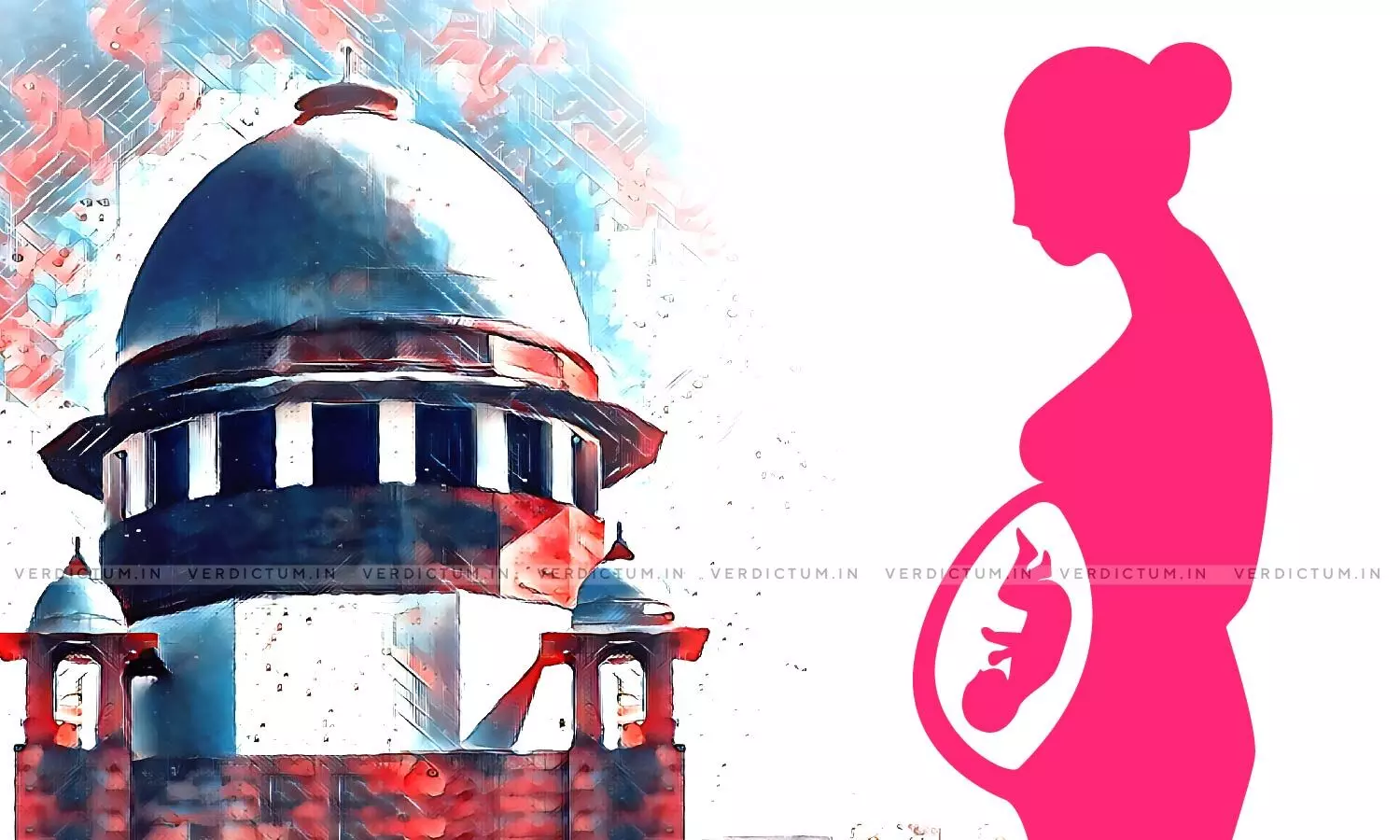
Can't Bring Up Child At Age Of 60, Difficult To Maintain Yourself At That Age: Supreme Court Observes That Upper Age Limit In Surrogacy Act Is Appropriate
 |
|Today the Supreme Court observed that the upper age limit prescribed for couples wanting to adopt the Surrogacy procedure under the Surrogacy (Regulation) Act, 2021 is appropriate. The Court made the observations while considering interlocutory applications in a batch of cases where the Court had earlier granted interim relief to women who were unable to produce oocytes due to medical conditions.
The Bench of Justice BV Nagarathna and Justice Ujjal Bhuyan today passed similar interim orders in favour of Petitioners who were women unable to produce oocytes due to medical conditions. The Court passed the orders after obtaining medical opinion in sealed covers, with respect to each of them.
Earlier, the Court had stayed the amendment Para 1(d) in Form 2 of the Surrogacy (Regulation) Rules, 2022 only with respect to the Petitioner, while granting her interim relief.
The Act prescribes that the intending couple be between the age of 23 to 50 years in case of female and between 26 to 55 years in case of male.
Today, during the hearing, when the Bench found that persons beyond the upper age prescribed in the law had also applied for relief, Justice Nagarathna observed "There are cases where even older people are seeking relief. They are all in their 60s and all.... In the case of medical condition, we understand. Difficult to bring up a child in 50s-60s. Once a child starts walking, you know how difficult it is to monitor such a child".
Justice Bhuyan then observed, "It is difficult to maintain yourself". Justice Nagarathna then enquired whether there is any age cap for adoption. The Bench was told by the Counsel that there is a combined age cap for adopting parents.
"In the 60s and all, very difficult... From the child's point of view we are saying", Justice Nagarathna said. The Child would not know whether to call the person a father or a grandfather, Justice Nagarathna added on a lighter note.
"We have to look at it from the child's point of view, whether they can provide for the child, illness, if any, of the parents. It is one thing to have a child, to rear a child, educate a child.... Very easy to bring a child to this world, but to make them good citizens, to provide the wherewithal for child..... What about the rights of the child? Suppose, god forbid, anything happens to the parents...", Justice Nagarathna observed.
A Counsel for the Petitioner then responded that the same must have been the consideration behind the age limit. "Now everything people want to challenge. Even normal parents will think a hundred times before having a child in their late 30s or 40s. There is an intent behind it", Justice Nagarathna observed.
The Counsel then said that those who are before the Court are desperately in need of the child. "They could have always adopted. Right in the beginning when they came to know that they can't beget a child, they could have adopted a child", Justice Nagarathna said.
During the hearing, "three very senior feminist academics" sought to intervene in the batch of cases to assist the Court. The Senior Advocate appearing on their behalf submitted that they have worked on surrogacy for ten years and have written about fourteen papers on the subject. The Senior Counsel said that the first applicant is Dr. Prabha Kotiswaran, from Kings College, the second, Dr. Madhusree Jana from Kings College and the third applicant is Dr. Arati Madhavan from MG University, Kochi. "They have no personal stake. They just want to represent the point of view of recognition of reproductive labour and how Supreme Court Judgments have held that such labour must be compensated. They may just be heard, their IA may be allowed, they will file written submissions and assist the Court", the Senior Advocate submitted.
"When we hear the matter, you please mention. Not right now", the Court responded.
The Senior Advocate said that he wants to put across a point of view on "unpaid reproductive labour". "The women who undergo surrogacy and act as surrogates, they give up their regular professions. There is an opportunity cost in terms of their work, their family etc. and what the law contemplates under altruistic surrogacy is only compensation qua their medical expenses and some insurance, but unpaid labour has been deprecated by the Supreme Court", he submitted.
"Nobody forces them to be a surrogate mother. Let us not expand the scope of it", Justice Nagarathna said. The Court agreed with the submission of another Counsel that it would then be commercial surrogacy. "I am not advocating commercial surrogacy, I am just advocating compensation for them", the Counsel submitted.
"There is no compulsion here. It is a matter of choice for a person to be a surrogate mother, subject to what the Act and the Rules say", Justice Nagarathna remarked. "Altruism is where there is no compensation or financial return", the Bench added.
The bench then adjourned the matter for hearing.